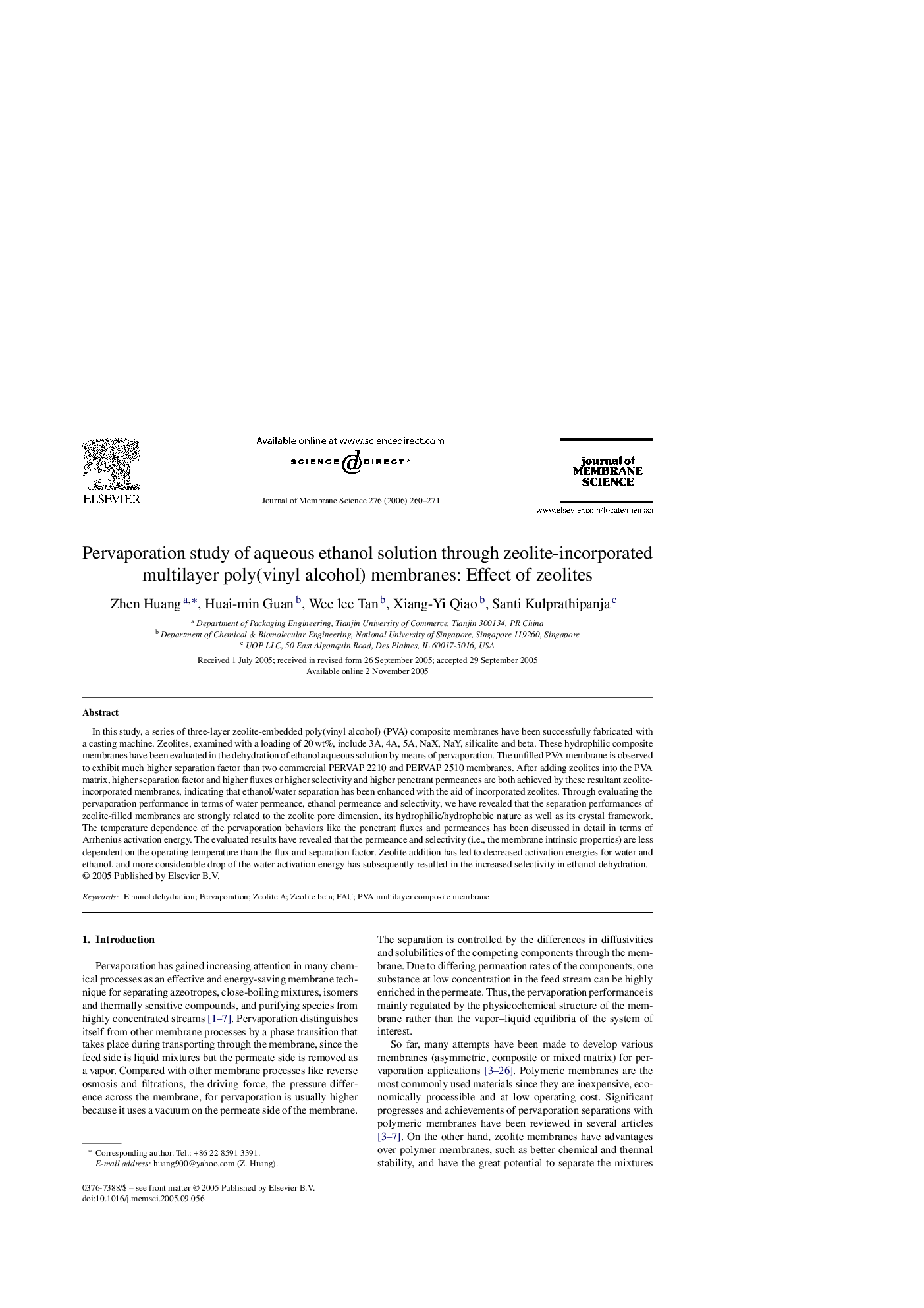| Article ID | Journal | Published Year | Pages | File Type |
|---|---|---|---|---|
| 639362 | Journal of Membrane Science | 2006 | 12 Pages |
In this study, a series of three-layer zeolite-embedded poly(vinyl alcohol) (PVA) composite membranes have been successfully fabricated with a casting machine. Zeolites, examined with a loading of 20 wt%, include 3A, 4A, 5A, NaX, NaY, silicalite and beta. These hydrophilic composite membranes have been evaluated in the dehydration of ethanol aqueous solution by means of pervaporation. The unfilled PVA membrane is observed to exhibit much higher separation factor than two commercial PERVAP 2210 and PERVAP 2510 membranes. After adding zeolites into the PVA matrix, higher separation factor and higher fluxes or higher selectivity and higher penetrant permeances are both achieved by these resultant zeolite-incorporated membranes, indicating that ethanol/water separation has been enhanced with the aid of incorporated zeolites. Through evaluating the pervaporation performance in terms of water permeance, ethanol permeance and selectivity, we have revealed that the separation performances of zeolite-filled membranes are strongly related to the zeolite pore dimension, its hydrophilic/hydrophobic nature as well as its crystal framework. The temperature dependence of the pervaporation behaviors like the penetrant fluxes and permeances has been discussed in detail in terms of Arrhenius activation energy. The evaluated results have revealed that the permeance and selectivity (i.e., the membrane intrinsic properties) are less dependent on the operating temperature than the flux and separation factor. Zeolite addition has led to decreased activation energies for water and ethanol, and more considerable drop of the water activation energy has subsequently resulted in the increased selectivity in ethanol dehydration.
